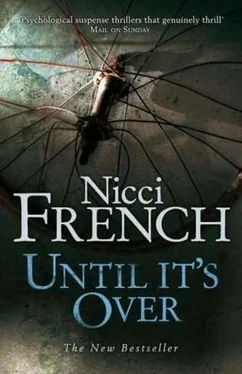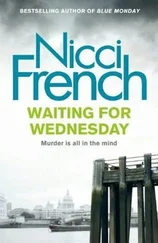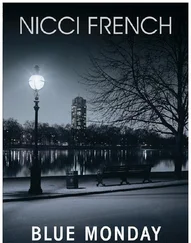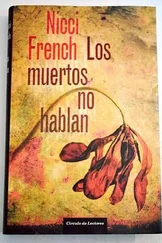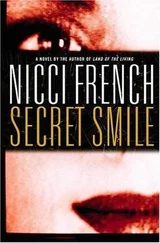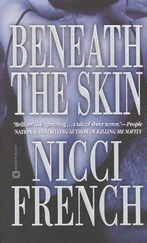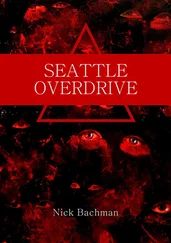I tried. I really tried to be who she wanted me to be. Of course I always remembered her birthday but I remembered other things as well. Her wedding anniversary, plus the date he had gone. The anniversary of her dad’s death. I wrote them down, although I didn’t really need to. I have a good memory. Sometimes, when I can’t sleep, I lie in my bed and go over things in my mind to make sure I’ve got them clear. Other people’s birthdays, where they were born, their phone numbers, their favourite food and songs and TV programmes, silly things they’re scared of, stories they’d told me or I’d overheard. You never know when you’ll need things. You have to be ready, all the time.
When I went to see the doctor, I had already stolen quite a bit of money but he didn’t know that. Not just money. I couldn’t leave a shop without putting a bar of chocolate into my pocket or slipping a magazine under my jacket. It wasn’t because I needed stuff or felt entitled to it. I took far more than I could get away with at home, but it didn’t stop me. Sometimes I’d dump a T-shirt in a bin outside the shop. I never got caught. I don’t know why. It’s not as if I was clever or had worked out a brilliant system. Maybe people just don’t notice me. Whatever it was, the buzz faded. I preferred it with people. Even then, the people I’d taken money from didn’t realize they had been robbed. That was the trick – to take just the right amount, so that they didn’t understand that anything was missing. Sometimes they would look a bit confused as they went through their pockets and wallets. ‘Where does it all go?’ they might say. But it was just a few coins here, a note there.
I started with my mother. The first time I took a fiver from her bag. It was like a test, to see what would happen. Nothing did. So I edged up, bit by bit. Once, when I wanted to buy a pair of trainers, I took twenty and that evening when I showed them to her, I said I’d got them from a market stall for a tenner. I moved on to other people, but I was always very careful. It was hard work. Like being a spy.
You decide what you’re going to do and then you do it. It can be that simple. I had a list of things I had to do. One was to have sex with a girl before I was seventeen. I did that. One was to be good at football. I used to take my ball to the bit of land by the railway and kick it against a wall and practise keeping the ball up in the air. Hour after hour. I was never going to be one of the best, but I was in the school team, which was good enough. It meant I belonged. I was one of the team. I was cool. I had gelled hair and scars on my legs and girls liked me, or said they did. Everyone’s faking it. The difference between them and me is that they don’t realize it. I do. That puts me ahead. I’m more honest than other people. I know who I am and I know that I’m alone.
I always had friends and I even had a best friend, Jonathan Whiteley. I still keep in touch with him. He still lives in Sheffield. We phone each other up and text each other, and when we meet, we reminisce about the good old days. How we used to play tennis against the wall of his house. How we got drunk on cider when we were twelve. How we used to play up in maths. The time we went camping and he got chased by a ram; the time we went to the pop festival and lived on beer, crisps and marshmallows for three days; the time we set off the fire extinguisher on the school trip. But not the time I nicked his sister’s credit card. Or the time I lobbed a stone through his window late one night after an argument that I can’t even remember now. Or the time I took his favourite T-shirt, balled up in my school bag between my physics and my art, and never let on. I’ve still got it. It’s one of my favourites. It doesn’t smell of Jonathan any more. It smells of me.
I get headaches sometimes. I didn’t have the first until I was thirteen, and I didn’t know then what was wrong with me. Later, of course, I came to recognize the feeling and would know an attack was coming by the prickling of my skin, a tenderness in my body that made it hurt if anyone touched me. But with the first one, it started with a waiting feeling – not a headache, exactly, but knowing that a headache was creeping up on me. Then a sick throbbing above my left eye, as if something was being screwed into my temple. A clammy, shivery sensation that thickened into feeling sick. Lights flashing on and off. The pain got thicker and I had to lie on my bed with the curtains closed and press my arm over my eyes, but even so I could feel my eyeballs hammering in their sockets. In the end I got to sleep and when I woke the pain had melted away and I felt powerful, clean, more alert than ever before.
For about three years, I used to have headaches once or twice a month and I looked forward to them because of the way I felt afterwards, like I was glowing. Bit by bit, they got less common. Now it’s only about twice a year that I get the pain and welcome the surge of energy it flushes round my body. I like having the headaches. I’m good at pain. That’s one of my secrets. I carry it with me and nobody knows. People are blind; they’re blind because they don’t want to see. People are fools; they’re fools because they don’t want to know. I like to be reborn.
At last, after waiting so long, after years of training and knocking around, I was here. I was twenty-one and I was off and out. People come from all over the world to get to London. They escape on rickety boats, hide under trains and inside lorries. Not to get to Europe, not to England, but London, because in London you can either find people like you, whoever you are, whatever you’re like, or you can lose yourself. People arrive at Heathrow airport and rip up their identifying documents so they can’t be sent back. I’d have done that if I’d known how. I’d like to have washed up in London, naked and nameless, so I could have given myself a new name and created a new identity. Instead I got off the train at Euston and started again.
One cold Friday evening, just a few days into the new year, I was sitting in a pub on the basin of the canal at King’s Cross. I was on my third pint of lager and starting to feel woozy. Then I saw my mate Duncan coming towards me with a girl I’d never met before. I saw immediately that she was the kind of girl who made me virtually unable to string together consecutive words. She was tall, with long legs and strong, slender arms, and in spite of the winter weather she was dressed in shorts and a brightly coloured T-shirt. She was tanned and her face was freckled from the wind and sun. Her curly dark hair was tied back off her face. She had very striking dark eyes, which shone with laughter at something Duncan was saying that I couldn’t quite hear. She was carrying a bottle of beer in one hand, a satchel and a riding helmet. They approached the table.
‘This is Astrid Bell,’ said Duncan. He looked at her. ‘This is the guy I was telling you about.’
‘Hi,’ said Astrid. ‘ Duncan says you’re looking for somewhere to live.’
Astrid wasn’t like any of the girls I had met before. She didn’t flirt or flatter people. She wasn’t tremulous, devious or eager to please. She didn’t care if I liked her or not. I don’t mean she was unfriendly; far from it. She just knew who she was and she wasn’t going to try to be anyone else. There was no side to her and no trickery. I could see that she would never pretend to have heard of a band that didn’t exist, or laugh at a joke she didn’t understand, or act coy to get her own way. I could tell that about her even before she sat down at the table opposite me, cupping her chin in her hands and looking at me with her clear, dark eyes. I watched her at the bar as she ordered us drinks, ignoring all the men who were ogling her. And I watched her as she made her way back to me, holding the two glasses carefully so she didn’t slop them, turning her head to grin and say something to a friend who called to her from the cigarette machine. There was a clean-limbed gracefulness about her, in spite of her skimpy cyclist clothes. It seemed to me that she was more clearly outlined than anyone else in the pub, as if she was backlit, or the central focus of a photograph in which all the other characters were marginal and slightly blurred.
Читать дальше
